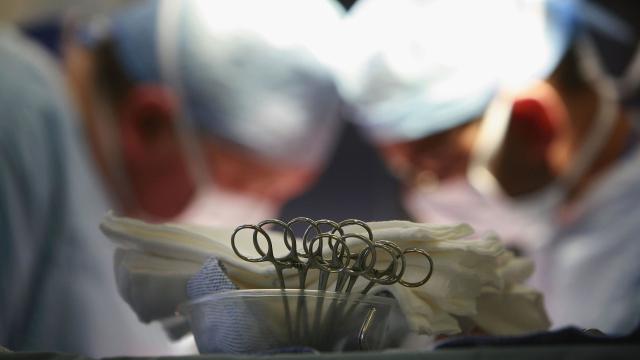Doctors say that a Michigan woman’s untimely death last fall was caused by covid-19 unknowingly spread through a double lung transplant. It’s likely the first clear case of covid-19 linked to transplantation. Another doctor contracted the viral illness through the procedure, but survived.
The woman’s tragic case was detailed in a report published earlier this month by doctors at the University of Michigan Medical School, in the American Journal of Transplantation. According to the report, the woman needed the transplant because of her chronic obstructive pulmonary disease. Her donor was a woman who had recently died of severe brain injury from a car accident. Standard screening, including a nasal and throat swab test for the coronavirus (SARS-CoV-2) on the donor and recipient, turned up nothing unusual and the procedure appeared to go off without a hitch.
Three days following the transplant, however, the recipient spiked a fever and began to have trouble breathing. A nasal swab test initially showed no traces of the coronavirus, but she obviously had pneumonia and a later direct test of her lungs came back positive for the virus. Over the next two months, the woman’s condition only worsened, and she developed septic shock. Though she was treated with antivirals, convalescent plasma, and ECMO (a last resort medical device that takes over for the heart and lungs), the woman succumbed to her illness 61 days after her transplant.
The donor had no history indicating recent exposure to the coronavirus or symptoms of covid-19 prior to her death, along with a negative nasal swab test. But doctors had held onto a fluid sample collected from her lungs and when they tested it after the recipient became sick, it came back positive. Genetic sequencing of the virus found in both the donor and recipient showed they were nearly identical, effectively proving the recipient’s infection came from the tainted lungs. A third person — one of the women’s surgeons who handled the lungs — became sick and tested positive for the virus soon after the procedure, and this infection was also traced back to the donated lungs. The surgeon recovered, however, and no other member of the transplant team was affected.
There have been other suspected cases of covid-19 spread through transplantation, but this is thought to be the first known case to demonstrate transmission by using genetic sequencing. Despite the tragedy of this death, however, it’s likely still an incredibly rare risk. This same month, scientists with the Centres for Disease Control and Prevention looked into eight suspected cases of covid-19 linked to organ donation documented between March to May 2020. They ultimately concluded that the most likely source of transmission in these cases “was community or healthcare exposure, not the organ donor.”
Rare as it might be, the Michigan doctors do think more can be done to ensure the safety of organ recipients and their doctors during this time, particularly when lungs are being transplanted.
“Transplant centres and organ procurement organisations should perform SARS‐CoV‐2 testing of lower respiratory tract specimens from potential lung donors, and consider enhanced personal protective equipment for health care workers involved in lung procurement and transplantation,” they wrote.
